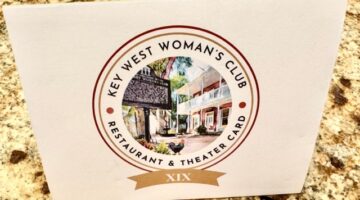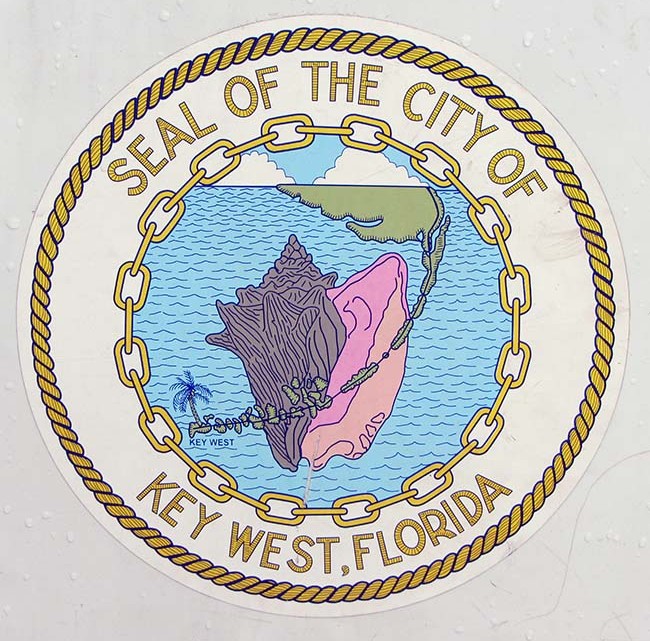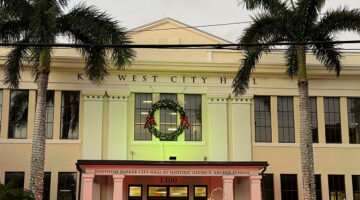Debate between environment and affordable housing wins compromise
BY PRU SOWERS
KONK LIFE STAFF WRITER
In the battle for Key West’s soul, how do you balance the need for affordable housing against overdevelopment and its impact on the already strained environment?
That question was the focus of a spirited debate recently with several compromises winning approval from both philosophical camps, showing the value of teamwork in the city. On one side was the Key West Sustainability Advisory Board, which has been instrumental in helping get environmental protection and energy conservation regulations included in the city’s building development system. On the other side was the city planning department, which was recently tasked by city commissioners to change the building permit process to encourage more affordable housing projects, downgrading a previous permit practice that emphasized “green” or environmentally friendly buildings.
The planning department and Key West Planning Board complied, last month approving several proposed changes to the city’s Building Permit Allocation System, called “BPAS.” Previously, builders and developers who included green elements in a project to increase energy and water conservation would receive more points in the permit process, helping move their application to the top of the list of limited available building permits. But heightened concerns over the lack of affordable housing after Hurricane Irma led city commissioners to consider reducing the point value of energy sustainable options and increase the point value for options aimed at encouraging affordable workforce housing in Key West.
The changes proposed by planning officials cut the point value of green initiatives by approximately half. That lit a fire under the Sustainability Advisory Board, which saw its mission of protecting the pristine Key West environment being undercut. The board presented 14 compromises to the proposed application changes that would, they hoped, embrace the new emphasis on affordable while not losing protections aimed at encouraging energy and environment sustainability. Currently, green initiatives account for approximately 77 percent of points available in a permit application, with affordable housing options accounting for about four percent of the possible points. The planning board recommendations would increase points for affordable to over 60 percent of a permit application, reducing the number of green points overall by 53 percent.
The Sustainability Advisory Board recommendations included keeping point priorities for creating a pedestrian/bicycle link in a proposed housing development, providing a cistern for water conservation and raising a building 2.5 feet above base flood elevation.
“Good green design can reduce utility costs by 10 percent. Good green design does save money,” said Alison Kerr, a Sustainability Advisory Board member.
The planning board accepted 10 of the 14 “friendly amendments” proposed by the sustainability board but could not agree on the remaining four. Instead of just shutting down the debate, Planning Director Patrick Wright took the four contested point priorities to city commissioners for resolution. After discussion, commissioners voted to accept one of the four changes proposed by the sustainability board and side with the planning department on the other three.
The issue with the most impact was the cistern requirement. The planning board agreed to remove the current requirement to maintain or build a cistern that is a minimum of 1,000 gallons or larger based on the total roof area of a proposed building project. But the sustainability board wanted the cistern priority left as is.
“We have to preserve water,” Kerr told commissioners.
“It’s an upfront cost burden that I don’t want to put… on an affordable housing project,” Wright argued.
Commissioners voted 5-2 to keep the cistern requirement intact. But they accepted Wright’s recommendations on three other proposed changes, including awarding points for building a home 1.5 feet above base flood elevation, which is still six inches above the Florida building code requirement; eliminating points given to using an energy and environmental design-trained architect; and points given for providing raised garden beds in a housing development.
The new BPAS point system will need a second and final vote from commissioners to become part of the building permit application process.
[livemarket market_name="KONK Life LiveMarket" limit=3 category=“” show_signup=0 show_more=0]



It is really simple when you think about it, we have two choices. To allow inundation by thousands of lower class indivuals to live in lower class housing or to demand a higher standard of gated communities with higher class of housing. The Keys has only one industry, that is tourism. We manufacture nothing, grow nothing, and in fact produce nothing substantial except left field art. Thank God we do not have deep water around these Keys, if we did this batch of sand dunes would turn into another BOCA with big money controlling everything. If the junta decides to degrade the Keys into a Holm Hatchery for useless eaters, then most locals will leave and this tourist Mecca will turn into another plastic water slide mad house. Shades of Amityville?